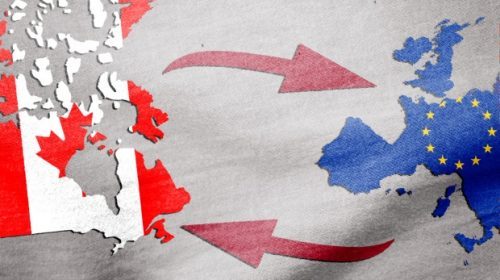
Currently, polarization and radicalization of our societies is among the most pressing and worrying developments of our time. Last month I talked about my motivation and interest in European history and politics with the Europe-Canada Network (eucannet.org) which has not lost any of its validity of the past two decades.
Read full Interview on EuCan.net

„What attracted you to the field of European Studies/ fascinated you about the EU?
The catastrophe of the two world wars which resulted in the division of Europe for over 40 years and the almost miraculous unification not only of Germany, but the whole continent, have sparked my interest early on. I was intrigued by and concerned about the events which preceded the fundamental social changes, but also socio-political preconditions for authoritarian attitudes, the othering of social groups, social exclusion and radicalization and how to work against these developments. Consequently, I dedicated my studies to the shared European history of the 20th century and the current affairs of the European states and Germany in one of the most relevant places for these questions in past and present: in Berlin. Now, almost two decades later, I’ve lost nothing of my curiosity and drive to improve our understanding of social change towards the extremes, but also the ever-present possibility of hope after violence and destruction for which there is no better symbol out there than the European Union itself.
 What is the most important issue to be addressed in your research?
What is the most important issue to be addressed in your research?
As an interdisciplinary scholar with a focus on political ideologies, political systems & violence and conflict, the most important issue to be addressed in my research with regard to European Studies is the current change of European societies towards the extremes, be it right-wing, left-wing or Islamist, the inter-dependence of these radicalizing milieus all over Europe and the interconnectedness of European societies’ polarization with feelings of insecurity when facing effects of globalization like the permeation of borders, migration and glocalization (Baumann, 1998). Over the next three years, I aim to connect the transnational perspective with regional research in Eastern Germany at the “Research Center on Radicalization and Violent Conflict” at the University of Applied Sciences, Erfurt, Germany which will be founded in the fall this year.“
(Interview quoted from eucannet.org)

Antworten